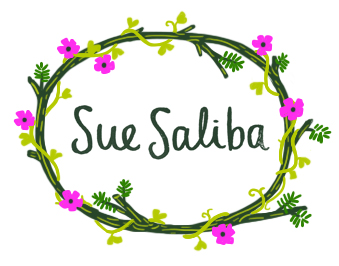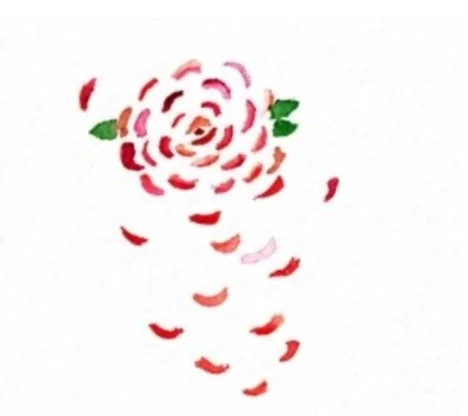Interview with the Children’s Book Council of Australia, Nov 2021
once, at the edge of the sea, is a story of friendship, love and how relationships can seem to question our identity. Fifteen-year-old Alice perceives her world through her relationship with nature. Can you tell us a little bit about how Alice and the Hooded Plovers came together in the story, and why nature is so present in your writing?
Alice discovers the Hooded Plovers on the beach one day when she should be at school. She comes across the nest of three eggs on the sand with the two adults nearby and is immediately drawn to the little family of birds. There’s something about their vulnerability, it seems, that touches Alice and she is drawn to protecting them. When the eggs hatch, three tiny chicks emerge and Alice learns more about the birds – that the chicks need to feed themselves at the water’s edge from birth, that they cannot fly for five weeks and that the parents are incredibly loving and even self-sacrificing.
This strikes Alice whose own mother is distant and doesn’t provide a nurturing home for her.
Read the full article here.
Spotlight on YA, Nov 2021
Sue Saliba wrote her first YA novel, Watching Seagulls, twenty-three years ago. It was an autobiographical novel about her childhood and was told in fragments, partly to reflect her chaotic home life growing up with her mother who had bipolar disorder. It was a CBCA Notable Book. Sue then went on to explore more experimental (and less publishable) styles of writing via an MA in Creative Writing and spent time teaching Creative Writing at Melbourne University and RMIT.
Read the full article here.
Q & A with Buzz Words, May 2019
Sue lives on a little dirt road called Teddy Bear Lane on Phillip Island. She... is always rescuing one animal or another. She’s spent the last eleven years (since leaving inner-city Melbourne) entirely fascinated by the natural world around her, helping to restore indigenous bushland and continuing to write her young adult novels.
Read the full article here (pp 9-11)
Women in Conservation on Phillip Island, January 2018
My earliest encounter with nature was discovering a very dehydrated turtle in our driveway one extremely hot summer day. I was a very young child and we lived in what was then the beginnings of a suburb out near Keilor. It was a place of paddocks and unmade roads, a few new weatherboard houses and a creek where my siblings and I would spend a lot of our time. My dad and I carried the turtle to a makeshift pond he’d made of concrete surrounded by rocks in our front garden. My dad was a pretty bad handyman and the pond had a crack so every day I’d take water out and refill it for the turtle which went in and out of it.
Over time the turtle travelled away and didn’t return but I always remember that sense of nature – of someone from that other world beyond my human urban one – coming into my life. It’s a feeling, a kind of sense of awe and privilege about the natural world, that’s never left me.
Read the full article here.
Mothers in YA - The Stella Prize, September 2016
‘My mother’s mental illness was a source of humiliation and great sadness, of self-hatred and fear for me as a young adult. I’ve found as a writer that my mother has made her way into each of my novels. I think this is because my female protagonists are desperately searching for an understanding of their world and themselves, of a way to feel free and alive and happy and it’s only through coming to some understanding of their relationship with their mother that they are able to do this.
Read the full article here
Q & A with ACT Writers' Centre, August 2015
We caught up with the author of Something in the World Called Love and Alaska. Her latest novel, For the Forest of a Bird, was released earlier this year. Living on Phillip Island in Victoria, she spends her winters watching out for visiting whales and her summers protecting endangered beach-nesting birds.
There's something uniquely beautiful and poetic about your writing... Is this the way these stories first appeared on the page?
Read the full interview (pp. 12-13) here
Off The Shelf, Penguin, May 2015
About five years ago my sister sent me an email titled, Photo of Dad. I read her message but didn't open the attachment. Then, a few weeks later she asked me what I thought of the photo. Our family didn't have many pictures of my father because he was so often absent. She must have thought I'd like it as a memory.
... That was when I began writing For the Forest of a Bird.
Read the full article (pp5-7) here
Interview with Bass Coast Post, March 2015
Why young adult fiction?
I think our teenage years are ones of real intensity. They are a time of transition, of exploration and of hope. I think they are a period when the world presents itself as full of possibility. I like writing for an audience in this phase and I like working with characters who are experiencing this period of their life.
Read the full interview here
Q & A with Amy Thomas Senior Editor Penguin Books. June 2011
Sue, have you always wanted to be a writer?
I always found – even as a child – that I experienced something special when I wrote, some kind of fulfilment that I didn't get from anything else. It was as if my life became more dimensional. So, naturally, I was drawn to writing – and I was encouraged by my teachers to be a writer. However, I had no idea what the practical path to this was. I started out being an English teacher because I thought this was a way of being close to writing. Of course, I hadn't factored in all the corrections, the disciplining and the regular yard duty sessions, as well as the fact that it wasn't the easiest occupation for the shyest person in the world like I was at the time! After a few years, I heard about a writing course at RMIT – and I instantly enrolled. That was where I wrote my first novel.
Read the full interview here
Environmental Themes of Alaska, Penguin Guest Post, June 2011
Lately I've become more enchanted by the natural world. We think of ourselves as separate from nature, that somehow nature is 'out there', an 'environment' around us, but perhaps it isn't. Perhaps we are nature and nature is us.
Read the full article here
Interview with Romi, Where The Writer Comes To Write, June 2011
What did you feel when you heard that your novel was being published?
I felt tremendous excitement - and a twinge of fear. Of course, I was thrilled to have my novel accepted but along with that came a slight feeling of apprehension because suddenly all those ideas and thoughts, moods and feelings I'd been alone with for a number of years were going to be out there in the world. It felt a little like stepping out of the shadows – both exhilarating and frightening.
Read the full interview here
Readings interview
Leanne Hall, Readings, Carlton, 28/09/09
Sue Saliba is the winner of this year’s Victorian Premier’s Literary Awards Prize for Young Adult Fiction with her highly original novel, Something In The World Called Love.
Something in the World Called Love features three very strong and distinctive characters in share housemates Kara, Esma and Simon. Do you relate to any of these characters more than the others?
I can relate to aspects of each but as an entire character, it’s Esma I most relate to. It’s Esma who embodies and explores many autobiographical aspects of my life…
Read the full Interview here
On the Write Path
Genevieve Gannon, The Melbourne Times, 1/10/2008
Sue Saliba threw in her day job to pursue a literary career. By Genevieve Gannon
Sue Saliba has done what many writers dream of: she has escaped the frenetic pace of inner-city Melbourne for a house on the coast, with a writing room in the garden.
Despite the sea change to Phillip Island, Saliba hasn’t left Melbourne behind entirely.
Read the full interview here
Books That Changed Me
Sydney Sun Herald, Sunday 21/9/2008
The House on Mango Street
Sandra Cisneros
This arrived in the post from my sister who lives in Alaska and, as I read it, it immediately touched the grief I still felt at my sister having left Australia all those years before. It’s a simple, beautiful book about a girl finding her own home, written as a series of vignettes in a child’s voice that is moving and profound. Each piece is like a painting or piece of music that exists in relation to the other.
Animal Liberation
Peter Singer
I never again saw animals in the same way after reading Animal Liberation.
Read the full Interview here
Phillip Island Writer’s Words Of Love
Ebonnie Lord, South Gippsland Sentinel Times, 4/11/2008
‘A blue clothes peg taken from her hair’ as bond for a share house, is some of the intricate symbolism weaved through Sue Saliba’s latest novel, ‘Something in the World Called Love.’
Read the full interview here







